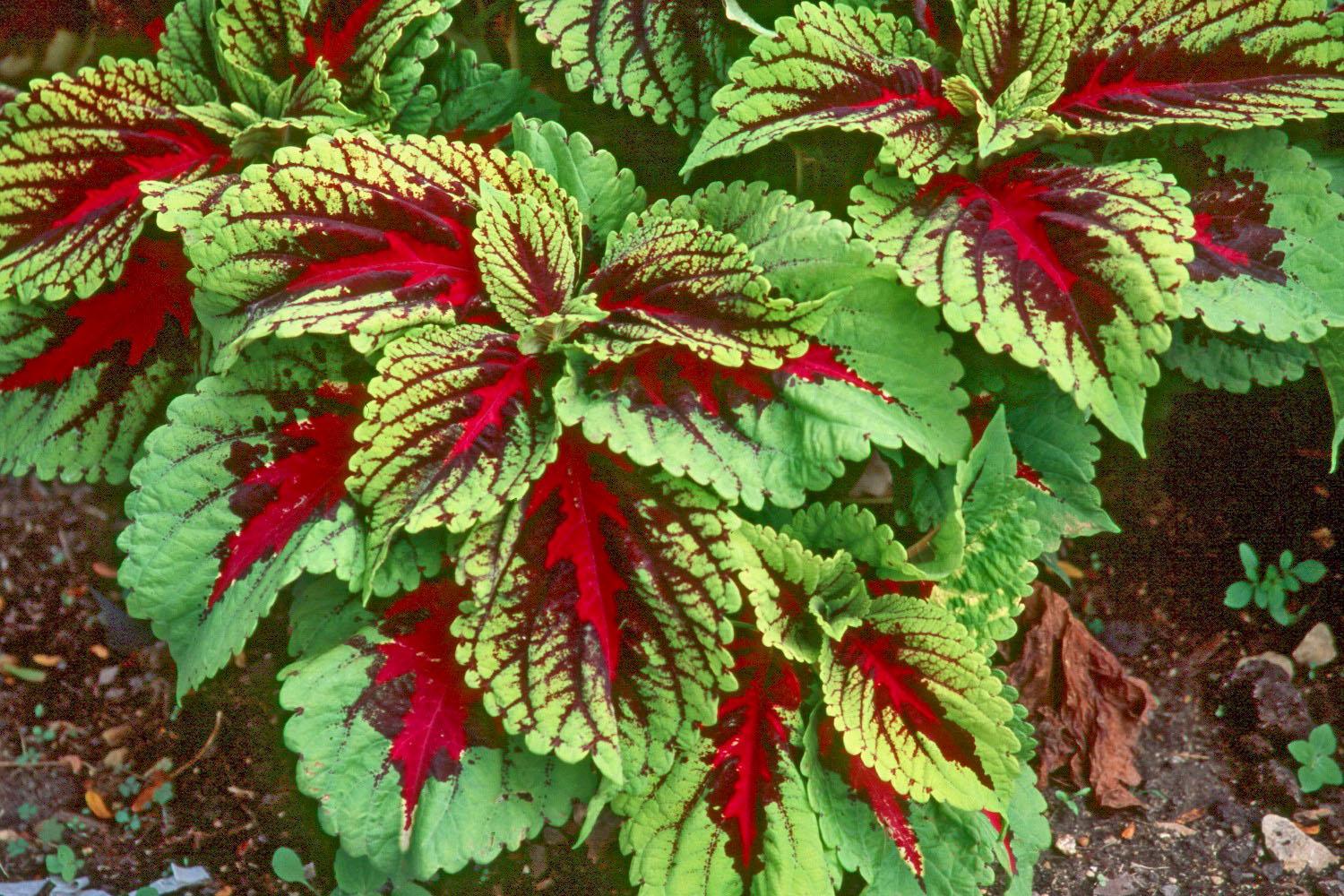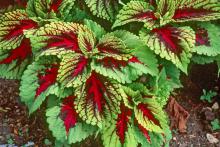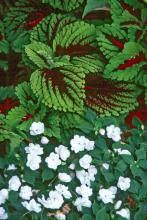Information Possibly Outdated
The information presented on this page was originally released on April 6, 2006. It may not be outdated, but please search our site for more current information. If you plan to quote or reference this information in a publication, please check with the Extension specialist or author before proceeding.
Kong coleus achieves MS Medallion status
By Norman Winter
MSU Horticulturist
Central Mississippi Research & Extension Center
Five years ago, I would have predicted coleus' days of popularity were over, but I have changed my mind. The Mississippi Plant Selections Committee chose the monolithic Kong coleus as a Mississippi Medallion award winner.
Mississippi Summer, a red sun coleus, first won the Mississippi Medallion award, and now the Kong coleus received the honor. This coleus will liven up the shade garden. When shopping, you'll notice the Kong series will be available in red, scarlet, rose and mosaic (multicolored) varieties.
Gardeners are starting to put the word “king” in front of the Kong series name, and it may deserve it because this will be a large plant. One leaf is large enough to cover your face.
Coleus were hot items at this year's garden and patio shows. I don't think demand for coleus ever will diminish, especially with new varieties like the Kong series. Partner this beauty with toughness, and the coleus is just too good to go away. Look for Kong at the garden center this weekend.
Coleuses are easy-to-grow, low-maintenance plants that are almost foolproof when grown in well-drained soil and watered through droughty periods. They also are excellent in baskets, especially when grown in combination with a vining or cascading plant.
Since we grow coleus for its boldly colored foliage, there is no point in letting them use energy to develop flowers. Pinch these off to help develop a bushy plant. Plant coleus now for months of enjoyment before frost.
One key to success with coleus is to add organic matter to improve bedding soil. In heavy clay soil, organic matter will improve drainage and aeration, and allow better root development. Liberal amounts of organic matter help sandy soils hold water and nutrients.
Organic matter, which improves soil and serves as a food source for soil fungi and bacteria, comes in the form of peat moss, compost, hay, grass clippings, barnyard fertilizer, shredded bark, leaves or even shredded newspapers. Add enough to physically change the soil structure. Ideally, at least one-third of the final soil mix should be some type of organic material.
To accomplish this, spread 2 to 4 inches of organic matter and the recommended rate of fertilizer over the garden surface and till to a depth of 6 to 10 inches. My favorite fertilizer for coleus is a 12-6-6. A pre-plant fertilizer followed by light monthly applications will keep plants growing well.
The Kong coleus is perfect for planting in the tropical-style garden as understory plants to tall bananas, gingers and elephant ears. If you don't like that look, use them in the shade garden combined with white Impatiens and perennial wood ferns. Hostas like Sum and Substance or Guacamole, also make an incredible
The Mississippi Medallion award program began 10 years ago. It is still going strong today, thanks to the garden shoppers and plants like the Kong coleus.









